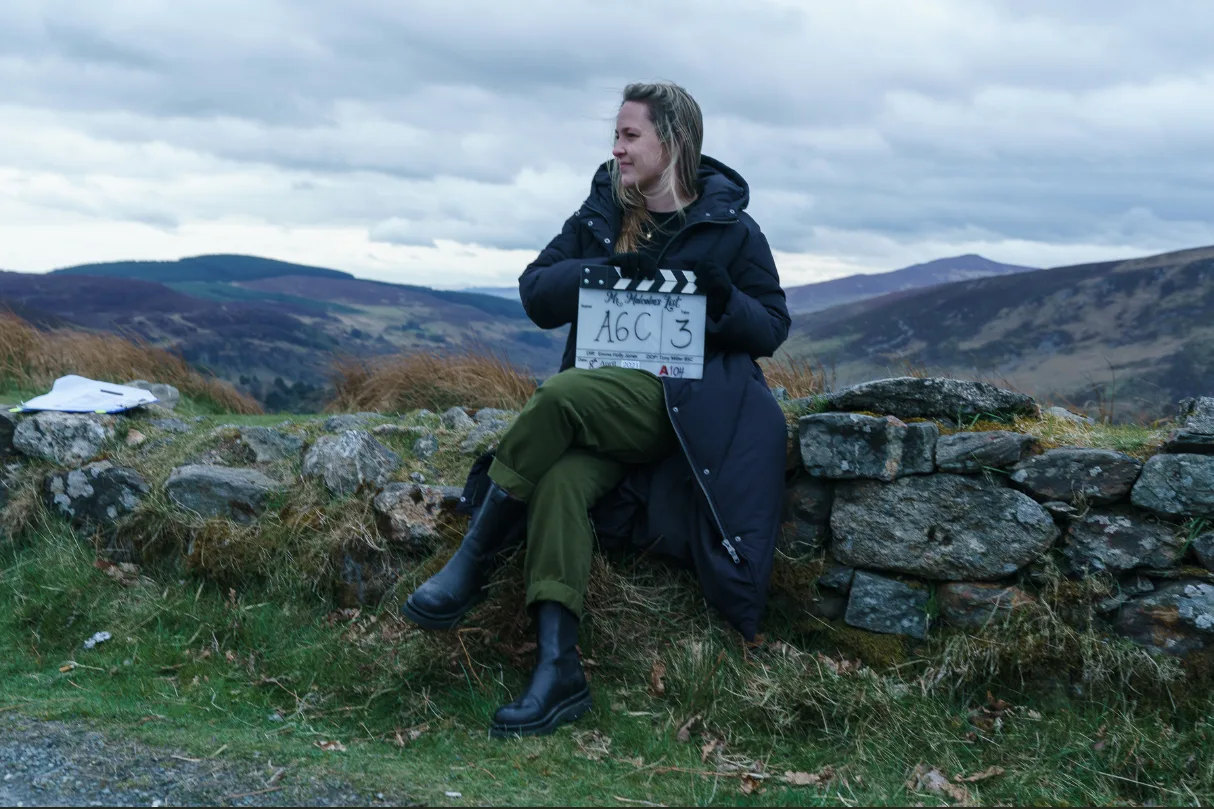
Emma Holly Jones on Mr. Malcolm’s List
Film Interviews

Ever since childhood, Emma Holly Jones has adored period pieces. “My mum’s favorite book was Emma by Jane Austen,” Jones says. The producer and director, who helmed the recently released Mr. Malcolm’s List was born and raised in England and grew up watching BBC adaptations of Austen’s books. “As my love for cinema grew, I think I consumed nearly every period genre movie ever made,” Jones says. Though the commercial, documentary and short-film director never imagined that she’d get that chance to make a period romance as her first feature film, she has done just that with Mr. Malcolm’s List.
A romantic comedy set in England in the 1800s, Mr. Malcolm’s List centers around Mr. Jeremy Malcolm (Ṣọpẹ́ Dìrísù, Mothering Sunday), one of London’s most eligible bachelors. Malcolm famously keeps a list of requirements he is looking for in a bride, and when Julia Thistlewaite (Zawe Ashton, Velvet Buzzsaw) fails to measure up, she becomes the object of public ridicule. Determined to turn the tables, Julia procures a copy of the list and convinces her childhood friend, Selina Dalton (Freida Pinto, Slumdog Millionaire), to come to London and play the role of Malcolm’s ideal match. Together, they will give Malcolm a taste of his own medicine—if Selina doesn’t fall for him first.
“Why do these incredible actors, who’ve studied material like this, not just have the opportunity to be in these films?” Jones asks.
Jones was first introduced to the script by Suzzane Allain when she heard it performed on The Black List Podcast, where the most-acclaimed, unproduced scripts are performed as dramatic readings. Jones’ mind was immediately transported to the world of Jane Austen, as well as to one of her favorite American sitcoms, Friends. “The episode where Rachel finds the list with the chubby ankles thing on it,” Jones says—”That’s where my mind went.” In the episode titled “The One With The List,” Ross (David Schwimmer) makes a pros-and-cons list about the two women in his life. Jones did something similar with an old boyfriend while in school and found the concept of setting expectations to be universal. “We all have a bar of what we’re willing to accept from other people,” Jones says. “I think the list is a physical representation of all of the insecurities and all of our desires, all wrapped up into the journey of finding one’s partner.”
The cast of Mr. Malcolm’s List is made up of a diverse group of actors, including Dìrísù, who is a British Nigerian, and Pinto, who hails from Mumbai. Jones was influenced by two factors, one of which was Ashley Madekwe’s performance in the podcast version. “She was so phenomenal,” Jones says of the actress, whose father is Nigerian and whose mother is English. A week after the podcast, Jones first saw Lin-Manuel Miranda’s Broadway sensation, Hamilton. “I remember just being completely blown away by that show in general, but it really sparked a thought process for me,” Jones says. “I pitched Jane Austen meets Hamilton.”

Despite the commitment to inclusive casting, Jones bristles at any characterization of so-called “colorblind casting” in her approach to the film. In fact, Jones made a point of tailoring the characters to the individual actors, including their ethnic backgrounds, both in crucial design choices and even in some dialogue choices. “Why do these incredible actors, who’ve studied material like this, not just have the opportunity to be in these films?” Jones asks. “It’s film, for god sakes! None of us knows what historical accuracy looks like, but I do know for a fact that England was not as white as the movies have presented it to be. That was enough for me.”
“As my love for cinema grew, I think I consumed nearly every period genre movie ever made,” Jones says.
So far, Mr. Malcolm’s List has been remarkably well received by critics and audiences alike, and the positive attention being earned for the film’s director is already setting high expectations for her sophomore effort. Jones, who has spent the last 10 years of her life bringing Mr. Malcolm to the big screen, admits that it was such an all-consuming effort that she almost forgot to think about what was next. “All I will say is that I’m reading a lot, and I’m excited to find out [what’s next],” Jones says. While there are many potential stories waiting to be told, only the very best, and those that have the right ingredients to be something special, will find their place on Ms. Jones’ list.
Read more interviews with filmmakers:
Home is Where the Heart is For Davey Fest
Interview: Makeup Designer Donald Mowat